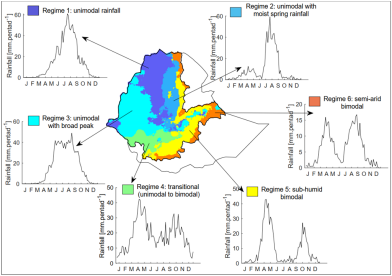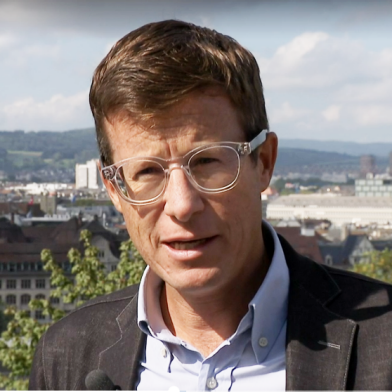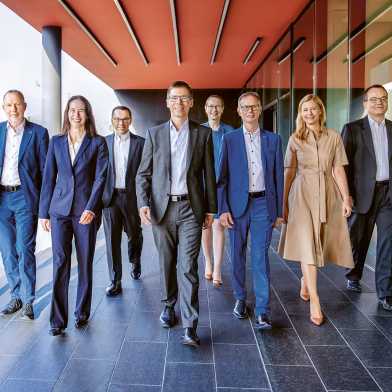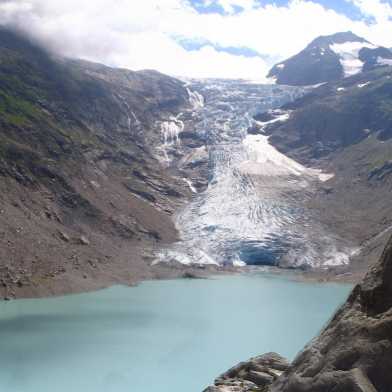September 2021
Rainy season shifts affect crop yields

As part of the Engineering for Development (E4D) programme, researchers led by Professor Peter Molnar investigate how climate change affects rainfed farming and food security in Ethiopia. In an initial study, first author Mosisa Wakjira correlated rainfall properties derived from global rainfall data and cereal yield data over the period from 1995 to 2010, demonstrating that there were losses in grain production of up to half a million tons due to a 5-day delay in rainfall possible.
Roman Stocker on C02 monitoring in the fight against Covid-19

Aerosols play an important role in the transmission of the coronavirus, especially in closed rooms. For this reason, the Swiss Covid-19 Task Force recommends the use of C02 sensors as a simple and inexpensive approach to measure the air quality in schools and other indoor environments. Professor Roman Stocker is co-author of the associated policy brief and explains in the SRF programme "10 vor 10" how C02 monitoring can help to reduce the risk of infection by aerosols.
A Glimpse into the ocean’s biological carbon pump

Oceans absorb carbon dioxide from the atmosphere through microscopic algae that carry out photosynthesis and then sink to the deep sea when they die. This sinking enhances the degradation processes, as D-BAUG researchers report in the journal "Nature Geoscience". Based on this fundamental observation, the team around Professor Roman Stocker has now designed a model of the biological carbon pump focusing on this novel coupling.
Fibres make chaotic turbulence more predictable

The chaotic behaviour of vortices makes predictions difficult. A research team around Dr. Markus Holzner has now developed a novel experimental method that enables more accurate analyses of the movement of turbulence in fluids.
Mobility and fire protection: New research initiatives

The ETH Executive Board has approved the establishment of the new Center for Sustainable Future Mobility and the purchase of a research furnace. D-BAUG will take a leading role in both initiatives.
A carbon-neutral response to rising electricity demand

Many everyday activities rely on electricity. As we look to 2050, this dependence is set to increase, with demand for electricity in Switzerland likely to rise to 50 percent. The increased demand can only be met by transforming the energy system.
Hydropower plays major role in Swiss energy supply 2050

No energy transition without hydropower: This is demonstrated by the final report of the Swiss Competence Center for Energy Research – Supply of Electricity published today. D-BAUG Professor Robert Boes led the research group on the hydropower sector.